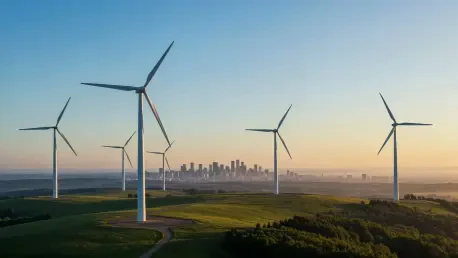The abrupt cancellation of the $5 billion Grain Belt Express project by President Donald Trump exemplifies the volatile dynamics within the U.S. energy landscape. As global economies lean toward sustainable solutions, Trump’s decision against this major renewable energy infrastructure initiative highlights pivotal debates on energy policy. By bringing into focus the interplay of political decision-making, renewable integration frameworks, and rural community influences, the ramifications of this policy shift become essential to understanding the future trajectory of energy developments in the United States.
Understanding Energy Policy Shifts and Their Broader Impact
This analysis aims to unravel the strategic impact of halting the Grain Belt Express, contrasting prevailing energy policies with emerging trends in renewable investments. Historically lauded as an ambitious project under former President Joe Biden’s administration, the Grain Belt Express was designed to facilitate the transition to renewable energy by transporting wind and solar power over 800 miles. Such initiatives form critical components in reducing dependency on fossil fuels, and their suspension marks a critical departure from past environmental priorities in favor of traditional energy resources. Evaluating this context provides foresight into how current energy strategies might reshape market dynamics and infrastructure planning.
Examining the Underpinnings of Political Decisions in Energy
The reevaluation of the Grain Belt Express underscores Trump’s administration strategy favoring fossil fuels, despite the project’s promise of economic and sustainability benefits. Concerns over renewable reliability and financial viability are often paradigmatic in energy debates. Renewables, portrayed as potential liabilities, challenge traditional frameworks, yet innovation continues to demonstrate efficient alternatives. As political interests directly inform infrastructure commitments, understanding the lobbying dynamics influencing these decisions is pivotal for stakeholders navigating current and future investments.
Rural Community Concerns: The Land Use Predicament
A significant layer in this policy shift is the pronounced opposition from rural sectors, particularly regarding land rights. Farmers faced potential property seizures through eminent domain, igniting decades-old issues surrounding land sovereignty. This clash reflects broader implications for renewable projects that directly impact private land ownership. Addressing these concerns necessitates fostering dialogue and proposing compensatory mechanisms to align national objectives with local rights, encouraging more cooperative approaches and community integration into energy solutions.
Regional Disparities in Energy Adaptation
The cessation of the Grain Belt Express project also accentuates disparities in regional energy transition capabilities. Innovations in energy transmission offer prospects to broaden renewable reach, yet local economic conditions affect adoption. States with coal-heavy portfolios now face complicated transitions. Insight into adaptive strategies, informed by expert opinion and cutting-edge methodologies, can stimulate regional growth and parity in energy distribution. This calls for reevaluations of cost-effectiveness and technological readiness, addressing misconceptions that hinder progress.
Envisioning Future Energy Solutions Amidst Regulatory Flux
Despite recent setbacks, the energy sector is transforming, with heightened interest in private funding and technological advancements. The dynamics encourage a market-driven shift, where smart grids and efficient storage solutions prevail amidst regulatory shifts. Navigating these changes demands strategic adaptability from stakeholders. Increasing reliance on innovation aligns commercial interests with sustainability objectives and underscores a commitment to revamping conventional models for long-term viability.
Strategic Insights and Recommendations for Energy Stakeholders
Upon reflecting, the narrative woven around the Grain Belt Express brings conclusive insights into multi-faceted considerations in energy policy formation. The emphasis on blending environmental and economic priorities highlights the necessity for informed engagement among all stakeholders. Businesses and policymakers are poised to embrace integrated approaches that reflect both community interests and economic realities. It was suggested that identifying proactive strategies will be instrumental in shaping future-ready energy plans, taking into account shifting policy landscapes and technological evolution. Acknowledging these dynamics empowers a resilient transition towards sustainable energy frameworks amidst changing global priorities.









